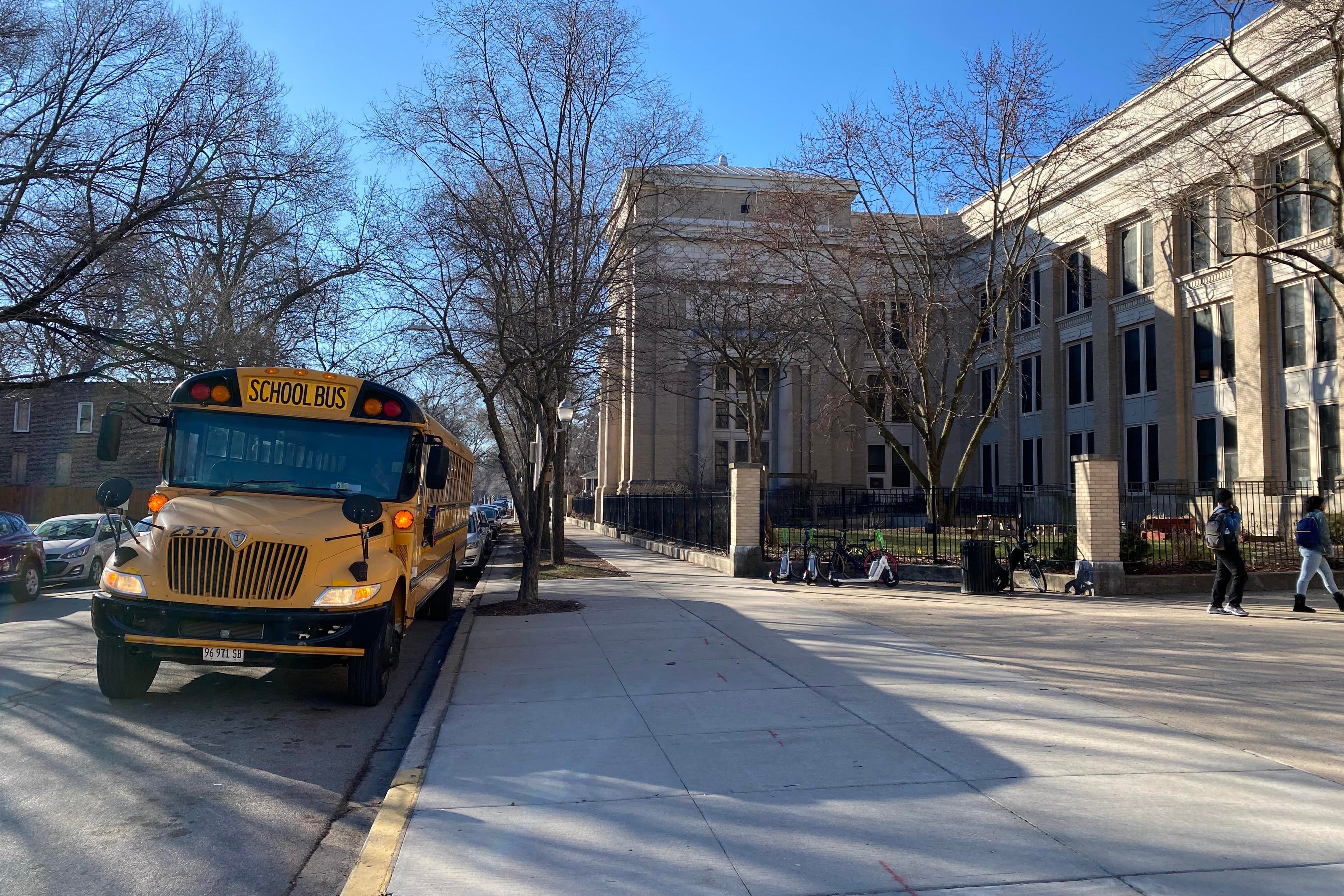Sign up for Chalkbeat Chicago’s free daily newsletter to keep up with the latest news on Chicago Public Schools.
Chicago Public Schools is restoring bus service for roughly 700 students at 18 selective enrollment and magnet schools after cutting it to prioritize students with disabilities last school year.
The district resumed transportation for a small number of these students in December using a new “Hub Stop” model, in which some schools serve as centralized pickup and dropoff points for students. CPS is now expanding this pilot program.
District officials said previously that the campuses were selected using CPS’ Opportunity Index, a measure of a school’s level of student need that factors in student demographics, neighborhood characteristics, and other metrics.
Students at 17 elementary schools and one high school are slated to begin receiving transportation Monday, according to information obtained by the advocacy group CPS Parents for Buses and shared with Chalkbeat. Those schools are: Beasley, Coonley, Ericson, Greeley, Hawthorne, Inter-American, LaSalle, Morton, Murray, Pershing, Poe, Pritzker, Pulaski, Sabin, Saucedo, Skinner West, Suder, and Kenwood High School.
CPS did not immediately respond to a request for comment, and it’s not clear how many schools and students participated in the pilot’s first phase in December. In November, the district said it had reduced the number of students with disabilities waiting on rides to school from about 1,200 to about 150.
Some families at these schools received emails from Kimberly Jones, the district’s executive director of student transportation services, to let them know their children are now eligible for rides. The note said they would hear from the district’s transportation vendors directly about pickup and dropoff times.
“We’re happy for all families who received good news and concerned for families who didn’t,” CPS Parents for Buses said in a statement. “We continue to advocate for innovative solutions that will ensure that public school transportation is never again placed on the chopping block.”
CPS has struggled to provide transportation and limit long commute times for its students with disabilities — challenges that district officials have largely blamed on a national bus driver shortage that began in 2020 during the COVID pandemic. These issues triggered multiple complaints to the state in recent years and the suspension of all transportation for general education students.
In announcing the start of the new transportation hub program late last year, CEO Pedro Martinez promised the district would add more schools and students to it — as long as it did not begin interfering with its efforts to provide rides to all students with disabilities who need them.
Mila Koumpilova is Chalkbeat Chicago’s senior reporter covering Chicago Public Schools. Contact Mila at mkoumpilova@chalkbeat.org.





